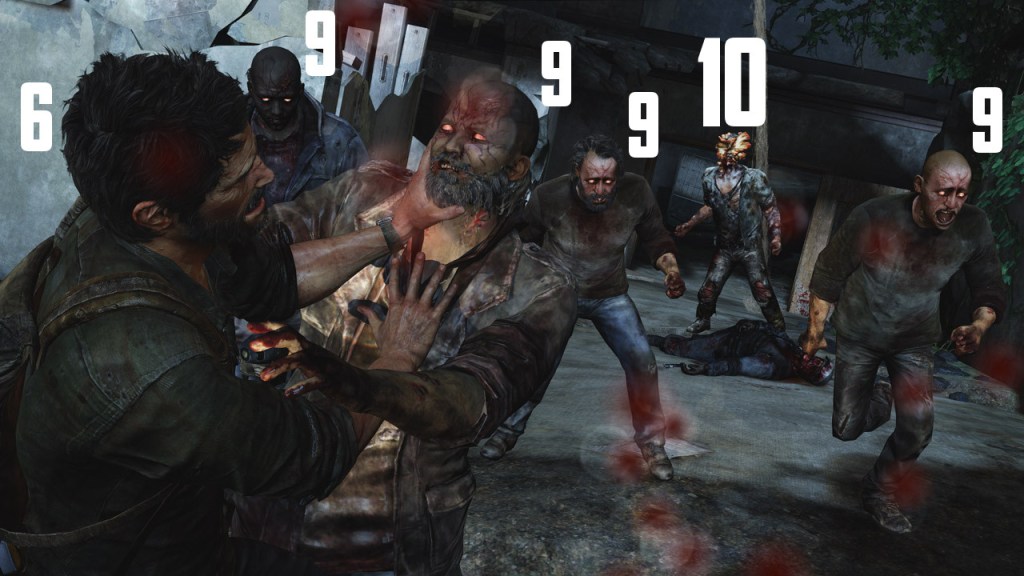Opinion-ator Steve Peterson posted an article last week called "The Death of Reviews" with the claim that "the increasing irrelevance of game reviews is a huge change in the industry, and ultimately it's for the best." Steve's claim is largely founded on taking two distinct looks at reviews and the role they play within the industry such that the-good-ol'-days appear reliant on the way a reviewer offered feedback on a game and that in "the modern game market" "everything has changed."
Not so. I'd lay waste to such a claim by pointing out that we have just as much garbage to sift through as we did nearly two decades ago. There's just as much shovelware, hardware launch lineups are still pitiful and meager offerings, and reviewers have always had a relationship a little too close to publishers. Receiving the first copy of a game for free, "for your job" is the initial crack sale to someone having already defined a habit.
Steve writes that "initial sales of console games no longer account for almost all of the revenue of the game" even though this is also patently untrue. For one, publishers wouldn't spend nearly as much money promoting preorder goodies and adorning the eyeballs of gamers with countless trailers. By the end of the article, Steve seemingly forgets this to use Destiny's absurd marketing budget in defense of his position.
Games marketing is a persistent blare of self-induced white noise overriding all common sense that ultimately undoes the need for consumer thought in order to guarantee that someone loves a product before they've even received it in exchange for their money.
Reviews, reviews never change.
In fact, we've covered this before. I wrote a few months ago that video game review scores will never change:
Games give the player so much ownership over the experience that it's impossible to diverge your own reactions from, not just what you've seen on screen and how it relates to life, but the fact that dozens of human beings put thousands of hours into giving you that digital life.
No one wants to put themselves in an experience they won't truly love, and reviewers cater to that sensibility. I don't think anyone alive would say "I really wanna sift through sh** with my bare hands for 8-12 hours, just to see what it's like." Reviewers aren't going to spend very much time evaluating a product that asks them to do the same either.
GameRevolution's own Most Interesting Gamer in the World, Heath Hindman also hits on this subject in a piece he wrote titled "Sorry, I Can't Review Hypothetical Content". In it, he highlights another unique issue present both in the review process of video games and in the way readers and consumers react to critics:
When I review a game, my job is to play the game that's put in front of me, finish it, and evaluate it as best I can. I should fully disclose which patches I do and don't have access to, which features I use, and so on, and I always do. I can't, however, sit on my hands and wait for the perfect version of the game to arrive. When it comes time to write that review, I can't withold criticism of the current product simply because it might get better some day.
Is this really the death of reviews or is it the death of critics who want to do their jobs properly? Is forward momentum in the industry, the expanse of mobile gamers, and increasing costs of development for PC and console hardware really killing the critical side of games discussion?
I disagree. After Nick Tan curated GameRevolution's Editor's Choice tag for reviews of games we find particularly fantastic, it was easy to choke on the number of 4.5/5 scores we issued in the past few months. It's even become a sort of running gag to rag on the staff for that gradual decrease in scoring severity, at least among GameRevolution's dedicated community, and we've been here for-fucking-ever. Steve, are you trying to kill us, specifically?
It speaks to how little someone may or may not read into a game when you consider that individual opinions vary so greatly even when pointed at the same subject. I personally loved the story of three despicable men overcoming shortcomings to become even half-likeable in Grand Theft Auto V, but GameRevolution's resident obscure-character-cosplayer Jessica Vasquez had her own unique take on the experience. Check out volume 1 and volume 2 of her documenting equally despicable female archetypes, if you have the nuts to call them that.
"The very nature and meaning of game reviews is under examination…"
No, it's not. It's called product evaluation. Should someone buy this piece of software or not? Does the content on the disc warrant the cost? Is it even worthy of sometimes hard-earned after school time?
"What does it mean to review a game that's essentially a service, changing every week?"
Games are not services… at least not yet. Unless you're reviewing World of Warcraft which isn't patched nearly as often as some diehard players would like, games are not services. They remain solid products you buy from a store or you get them cheap via a digital distribution service like Steam. Regardless, there's one transaction and the rest of the exchange is done in life… as in, how do you choose to spend your time? Let me cut some overzealous opponents off right now and say that you don't form a relationship with a game that you can't maintain in your everyday life.
"While a review may be completely relevant and accurate when it's published, that gradually declines as the game changes unless the review is regularly updated."
Again, I completely disagree with this sentiment. Patching buggy "loot caves" out of Destiny isn't enough to change a review score. Most game franchises that score 90s or higher every year from the same websites that say things like "believe the hype" before launch don't change the way Steve perceives they do, certainly not after launch. Adding downloadable content maps or even a single-player story mission after launch does not alter the nature of reviews in that reviews remain evaluations of a product and once the product drops on my front door step or on retail shelves, there's no avoiding the fact that it's now something someone can buy. There is a finality even in return and exchange policies at big box retail stores.
"This is why the ostensible reason behind the #GamerGate controversy—that the movement is about 'corruption' in game journalism, defined as paying in some fashion for positive reviews—is not credible."
No one f***ing understands #GamerGate, so let's not cloud forward momentum on the reviews topic by tying the two together.
"While there have been a few cases in the past (the distant past, mind you) of magazines or web sites shading reviews more positively because of advertiser pressure, the issue is really a nonstarter today."
Steve, Kane & Lynch: Dead Men landed on store shelves in 2007. That's nearly seven years ago now, but it doesn't change the fact that both consumers (ever-jaded and newly scarred by the aforementioned #GamerGate) and critics have been made fully aware of exactly how much money Jeff Gerstmann's opinion is worth in a corporate setting. The fact that one individual leaves GameSpot under the auspices of the exact situation you're describing as a "nonstarter" and then starts a successful new website only to be bought by the same megacorporation that tossed him out the door should spell out just how wrong this idea of game reviews "dying" is. Clearly, someone thought Gerstmann's ability as a reviewer and website manager was a threat to their own business. If CBS Interactive thinks reviews are still relevant, I can guarantee News Corporation feels the same way.
Let's not forget that GameSpot just fired a bunch of truly talented games writers too.
Steve even has the guile to state that "the death of reviews is not a development to be mourned, but one to be celebrated." He actually closes his argument with a logic knot in which he lays blame at the feet of both developers and the audience of review readers that still remain.
If you're going to write off the opinions of so many industry peers in one fell swoop, maybe I should put a nail in the coffin of your own position that reviewers are no longer needed by expanding the sentiment to all media.
How and why video games exist seems to be a major sticking point for Steve, at least in this instance of overreaching. There's no Goofus and Gallant mix up to be had in the fact that all reviews, even those of anti-video game dead man Roger Ebert's have their own audience and that critics have never held generating revenue for a publisher or a movie studio or even an author as a responsibility in their minds when they finally bring pen to paper or fingers to laptop keyboard as I did in evaluating Bayonetta 2 for GameRevolution. Steve, make sure you read the text and do your best not to skip straight to the score.
Consider this dichotomy:
Yes, $500 million spent on a single video game like Destiny sounds like an unholy amount of money for a single distraction that only teaches further twitchy shooter reactions. Yes, you could make the claim that Destiny has the potential to increase reading comprehension, motor skills abilities, and teamwork under the ideal circumstances. Finally, yes, I enjoyed Destiny and have written a positive review to that end.
No, not everyone likes Destiny. No, consumers do not have brand new $60 bills with Obama's face on them, specifically designed with a GameStop Powerup Rewards logo where the Federal Reserve System logo should be. No, I will not base all of my purchasing decisions on reviews, but I'll be damned if someone is going to say the decline in criticism of media, video games or otherwise, should be "celebrated."
If we're to accept the forward march of video gaming, of movies, of television, of music, particularly as each proceeds further and further into digital realms of both creation and consumption, reviewers and consumers must evolve to face the task. They'll do that by sticking to their own dogged ideals of each type of media, with a focus on the brands, experiences, and characters that touch them deeply throughout development into adulthood.







